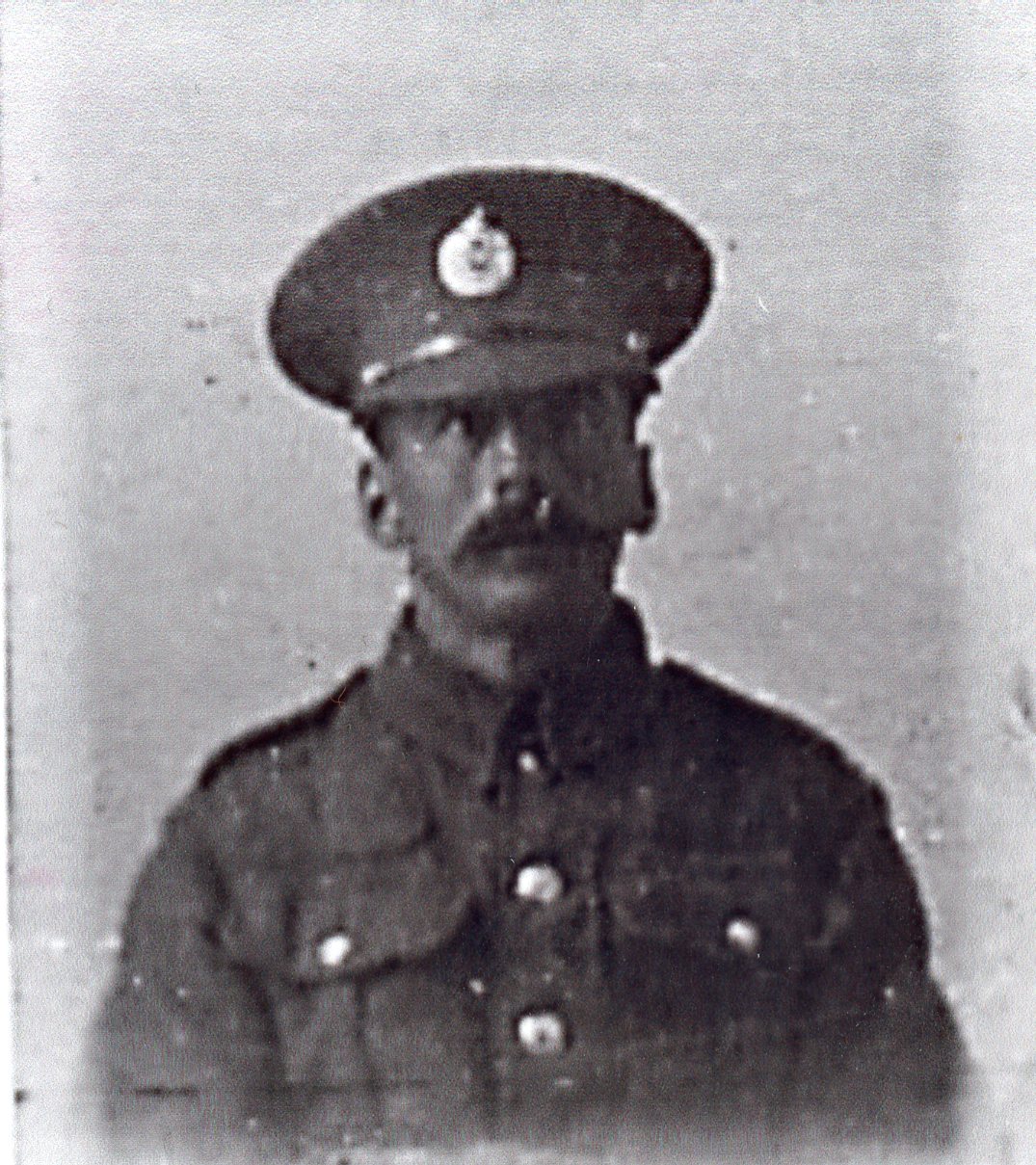Pte
Albert James Major
Informations sur naissance
|
Date de naissance: 17/04/1881 |
|
Lieu de naissance: Hounslow, Middlesex, Angleterre, Royaume-Uni |
Informations générales
|
Profession: ouvrier journalier |
Informations service militaire
|
Pays: Angleterre, Royaume-Uni |
|
Force armée: British Expeditionary Force |
|
Rang: Private |
|
Numéro de service: 46151 |
|
Incorporation nom de lieu: Egham, Surrey, Angleterre, Royaume-Uni |
|
Unités: — Lancashire Fusiliers, 19th Bn. (3rd Salford) (Pioneers) (Dernière unité connue) |
Informations sur décès
|
Date de décès: 17/10/1917 |
|
Lieu de décès: Kansas Cross, Langemark, Belgique |
|
Cause du décès: Killed in action (K.I.A.) |
|
Âge: 36 |
Cimetière
|
New Irish Farm Cemetery Parcelle: VII Rangée: E Tombe: 4 |
Distinctions et médailles 2
|
British War Medal Médaille — 20/05/1921 |
|
Victory Medal Médaille — 20/05/1921 |
Points d'intérêt 3
| #1 | Lieu de naissance | ||
| #2 | Lieu d'enrôlement | ||
| #3 | Lieu du décès (approximatif) |
Mon histoire
Private Albert James Major served in the Lancashire Fusiliers, 19th Battalion (3rd Salford). This Pioneer Battalion was part of the Divisional Troops of the 49th (West Riding) Division. Which participated in the Third Battle of Ypres.
From the 5th of October 1917 onwards the 19th Lancashire Fusiliers was stationed along the Saville Road, between the city of Ypres and the hamlet of Potijze. During the month of October they worked on maintaining and laying roads, duckboards and tracks over the shell logged terrain. This work was vital in getting troops and supplies to the frontline, as the terrain was utterly cut to pieces by the constant shell fire.
Starting from the 13th of October 1917 all Companies of the Battalion were working on part of a plank road running from the hamlet of Wieltje to Kansas Cross (D.13.c.30.70 – D.14.a.20.10). The 19th Northumberland Fusiliers suffered several casualties throughout the month of October 1917. Because all the work had to be done during the daylight, as it was impossible to see sufficient at night. Hence the 19th Lancashire Fusiliers were constantly shelled. Working in the open and during the daytime made the men an easy target for the German artillery. Though the work was highly dangerous, it had to be done, as the road would serve as a highway for the Canadian troops, who would eventually capture the heights at Passchendaele between 26 October and 10 November 1917.
On the 17th of October 1917 the 19th Lancashire Fusiliers suffered a total of twenty-nine casualties while working on the road to Kansas Cross. Twenty-five men were wounded and four men were killed instantly, due to German artillery fire. Private Albert James Major was one of the men who was killed on this fateful day. The 37-year-old was buried on New Irish Farm Cemetery.
From the 5th of October 1917 onwards the 19th Lancashire Fusiliers was stationed along the Saville Road, between the city of Ypres and the hamlet of Potijze. During the month of October they worked on maintaining and laying roads, duckboards and tracks over the shell logged terrain. This work was vital in getting troops and supplies to the frontline, as the terrain was utterly cut to pieces by the constant shell fire.
Starting from the 13th of October 1917 all Companies of the Battalion were working on part of a plank road running from the hamlet of Wieltje to Kansas Cross (D.13.c.30.70 – D.14.a.20.10). The 19th Northumberland Fusiliers suffered several casualties throughout the month of October 1917. Because all the work had to be done during the daylight, as it was impossible to see sufficient at night. Hence the 19th Lancashire Fusiliers were constantly shelled. Working in the open and during the daytime made the men an easy target for the German artillery. Though the work was highly dangerous, it had to be done, as the road would serve as a highway for the Canadian troops, who would eventually capture the heights at Passchendaele between 26 October and 10 November 1917.
On the 17th of October 1917 the 19th Lancashire Fusiliers suffered a total of twenty-nine casualties while working on the road to Kansas Cross. Twenty-five men were wounded and four men were killed instantly, due to German artillery fire. Private Albert James Major was one of the men who was killed on this fateful day. The 37-year-old was buried on New Irish Farm Cemetery.
Sources 1
|
Divisional Troops: 19 Battalion Lancashire Fusiliers (Pioneers). (The National Archives, KEW (TNA), WO 95/2786/2). https://discovery.nationalarchives.gov.uk/details/r/C14303 Autre référence |
Complément d’informations 3
|
Commonwealth War Graves Commission Database https://www.cwgc.org/find-records/find-war-dead/casualty-details/452725 |
|
Namenlijst (In Flanders Fields Museum) https://namenlijst.org/publicsearch/#/person/_id=e5c17dcc-23e3-4e6d-92be-89102d25db33 |
|
Lives of the First World War (Imperial War Museum) https://livesofthefirstworldwar.iwm.org.uk/lifestory/2887540 |
